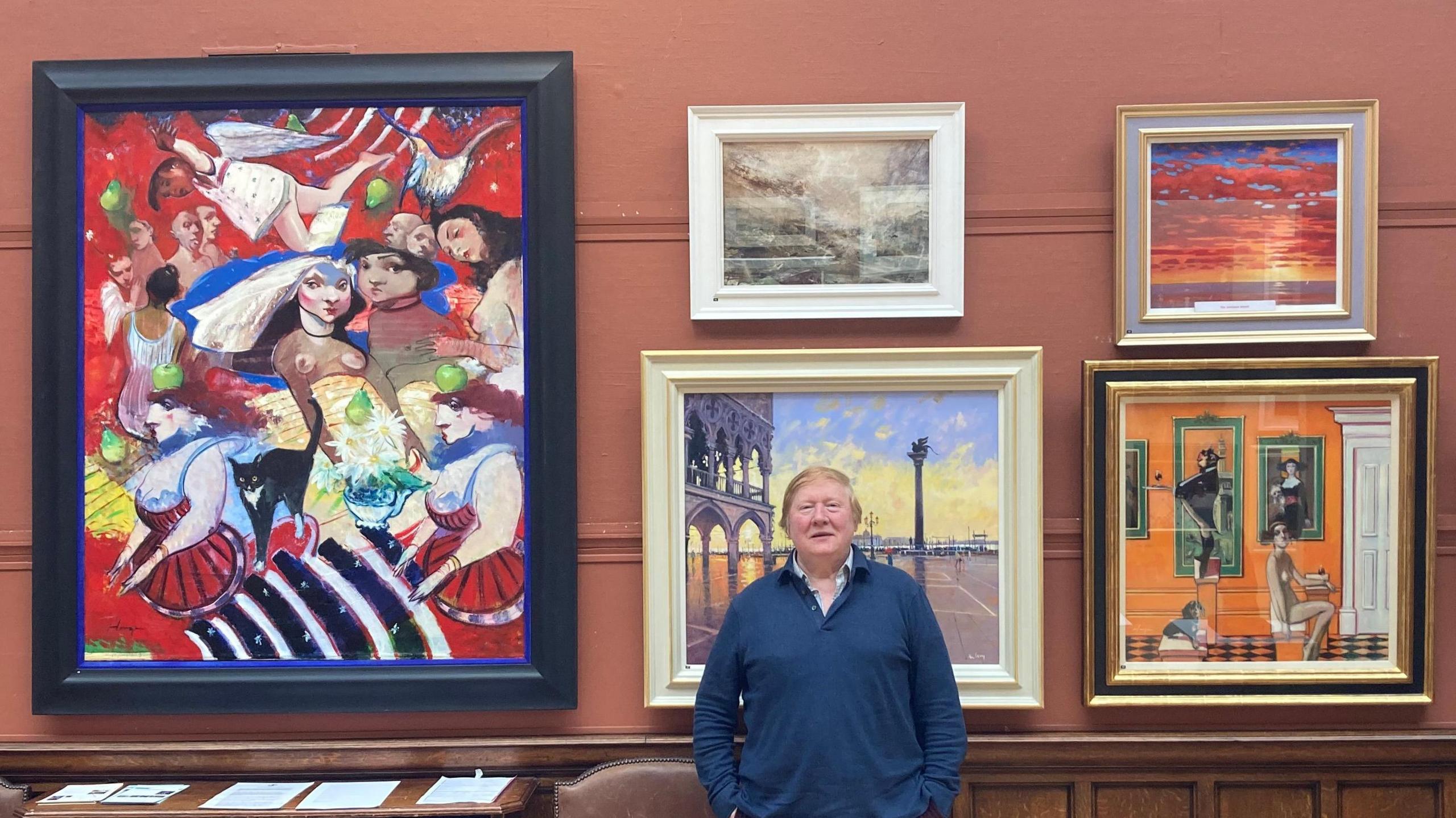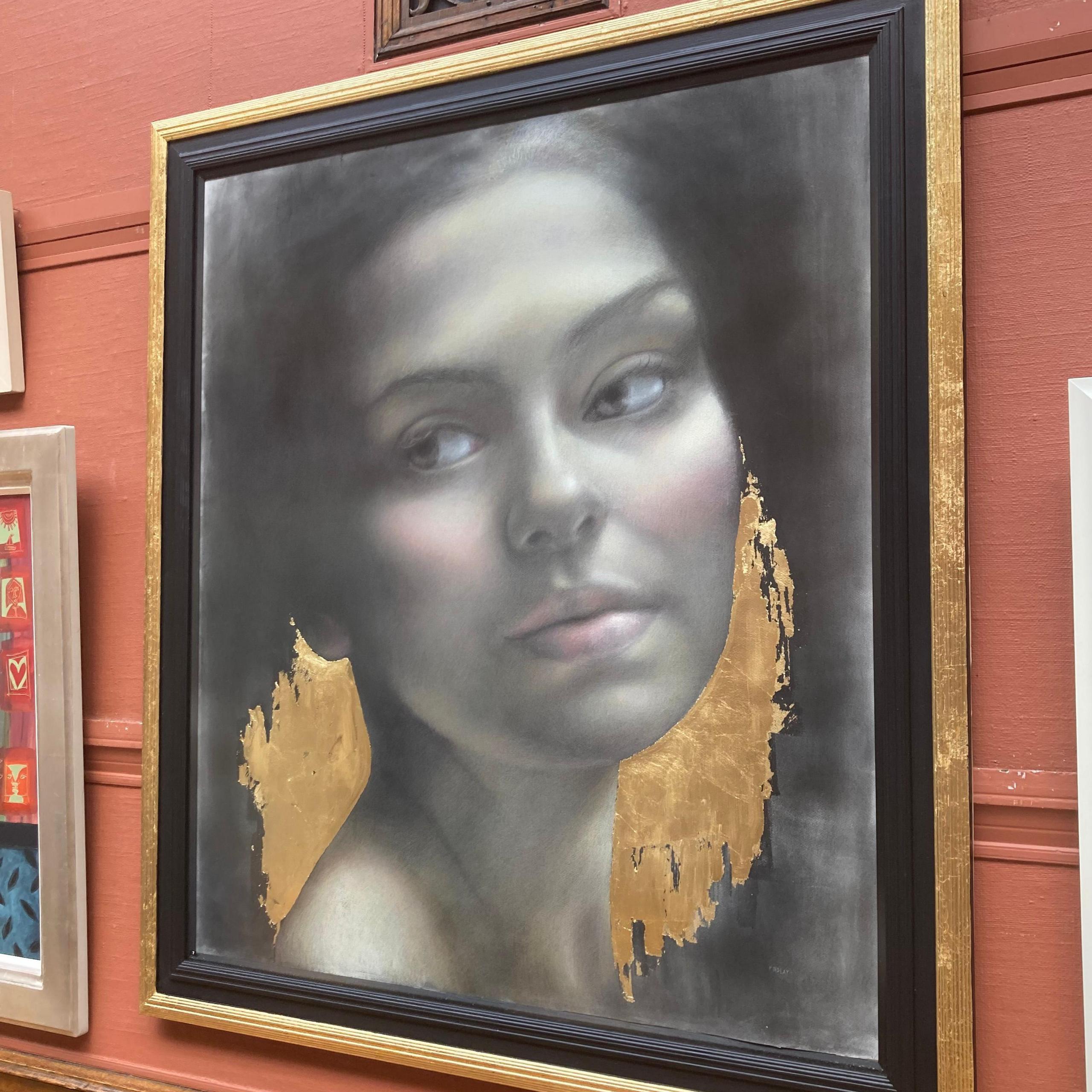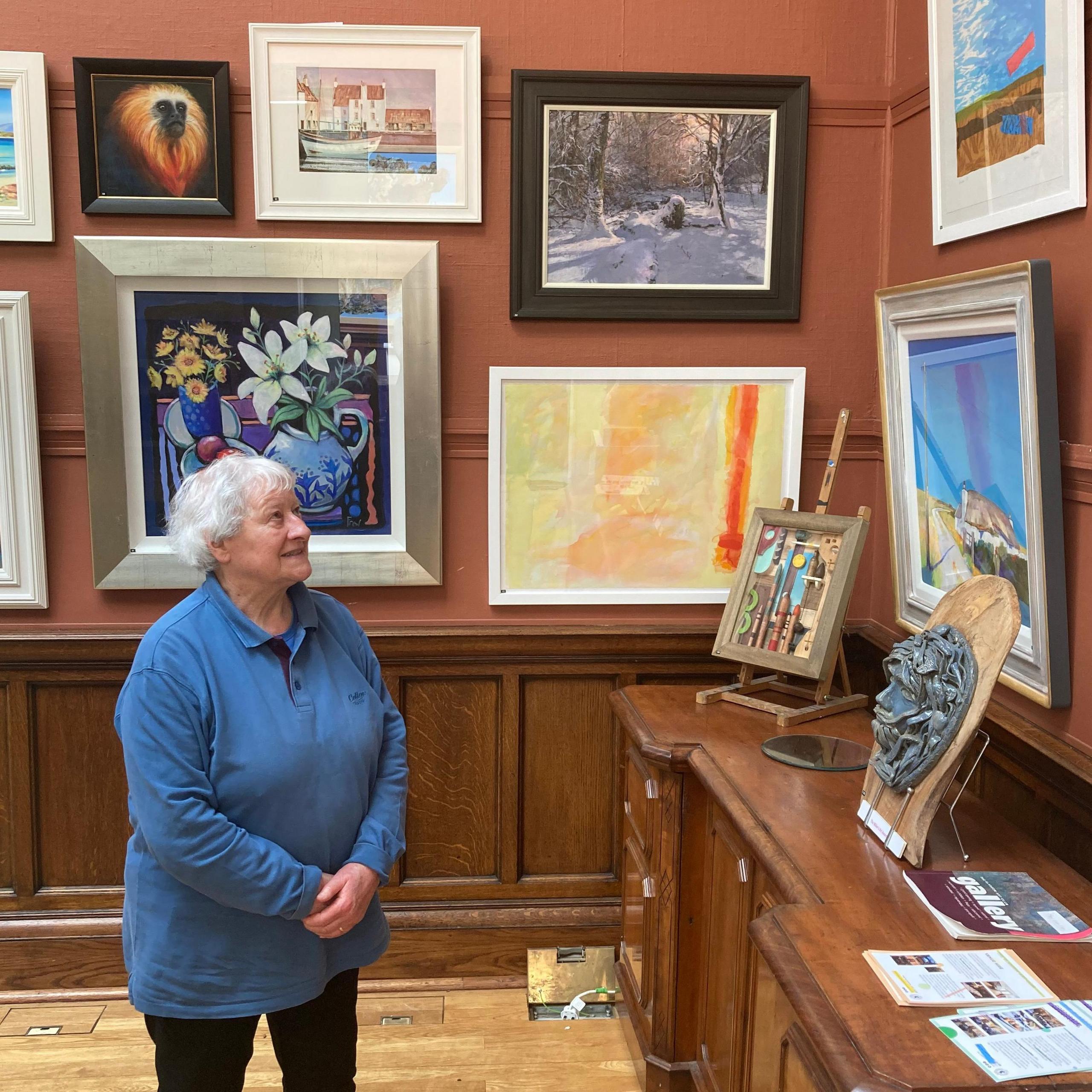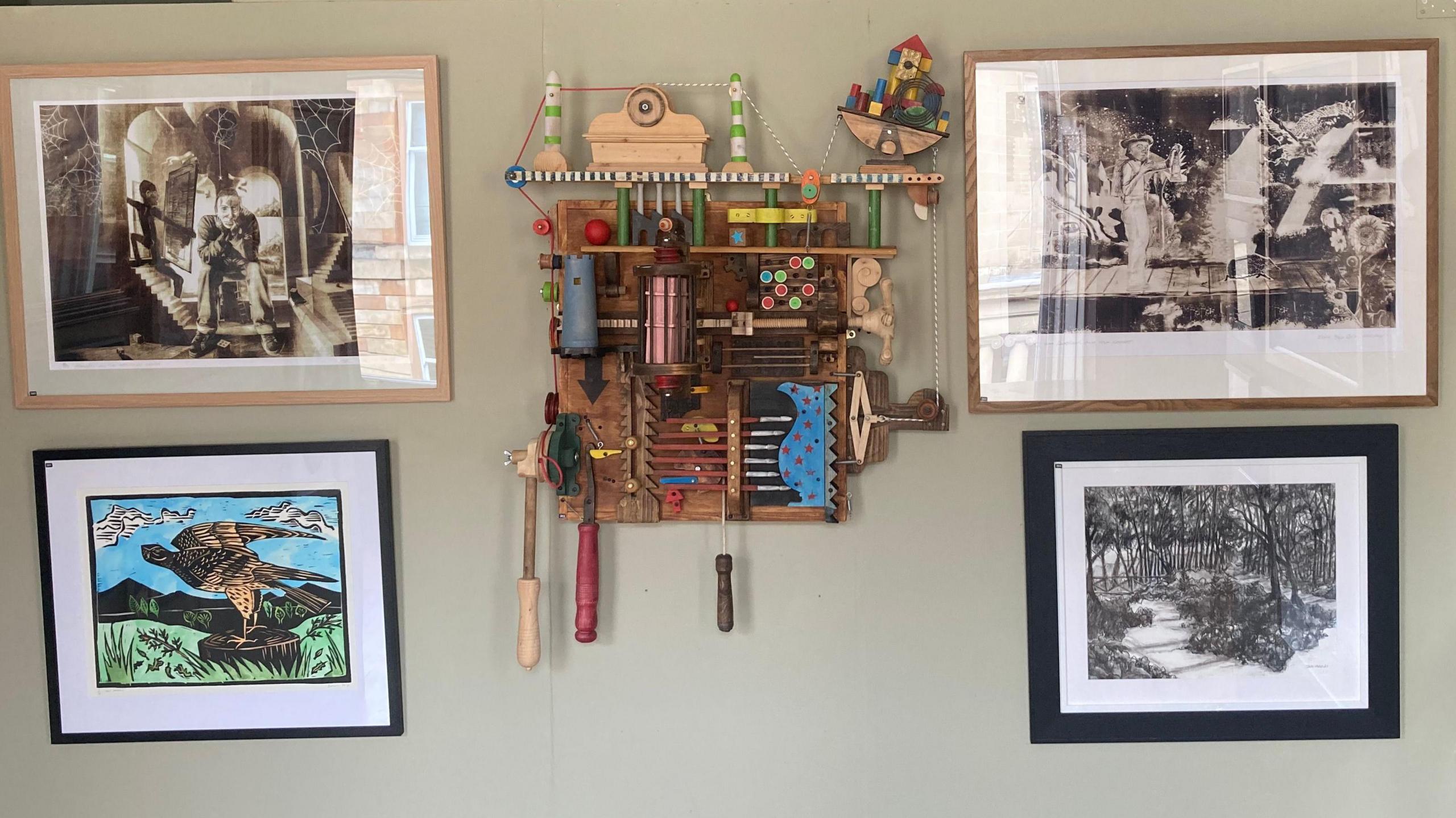Paisley artists facing biggest challenge in 150 years

Joe Hargan is president of the Paisley Art Institute
- Published
There has always been a close relationship between the Glasgow Art Club and the Paisley Art Institute.
They’re both membership organisations which date back to the 19th century.
They share many of the same members and a passion for the promotion of art and artists.
But the connection has become even more vital as Paisley Art Institute (PAI) faces the biggest challenge in its 148 year history.
The institute and Paisley Museum and Art Gallery were both founded in the same year and have been closely intertwined since.
PAI has gathered a collection of more than 400 works including pieces by Sir John Lavery, Francis Cadell and Eugene Boudin.

Work by Denise Findlay features in the new exhibition
Paisley Museum’s collection includes many works by PAI members, bought during their regular exhibitions.
PAI hoped their place in the new £45m Paisley Museum, due to open next year, would be just as generous.
But when OneRen, the cultural and leisure arm of Renfrewshire Council offered the use of just one gallery, and display of 43 of their 400 strong historic collection, negotiations broke down.
PAI is about to open its annual exhibition in the Glasgow Art Club.
The works which are all for sale – are an eclectic mix by established members and new artists – but the institute also hopes to display some of its historic works, which are currently in storage in Paisley.

PAI is holding its annual exhibition in the Glasgow Art Club
Paisley Shawl, by Fra Newberry, the former director of Glasgow School of Art is top of the list.
“Newberry was a member of both PAI and Glasgow Art Club, as are many of our current members,” says PAI president Joe Hargan.
“His great granddaughter Denise Findlay has a piece in our new exhibition, just one of the many family connections between the clubs.”
“I hope in the next week or two to be able to put that work up in this very gallery.”
“We've also pencilled in for later on in the year, an exhibition of the Paisley art collection, alongside the Glasgow Art Club’s historic works.”
Although the move could allow for some shared costs and savings, it’s also likely to be expensive and PAI may have to take drastic action to pay their share.
“It has already been expensive with all the legal costs over the last year and a half,” says Joe Hargan.
“There will be huge insurance premiums and we have to think creatively how we can sustain as much as we can of our collection.
"We may have to shed some of it because it's just going to be too onerous to be able to keep going so it's thrown up whole new problems but at the same time, with the art club and other organisations we can hopefully begin a new chapter.”
The last few years have been turbulent, and some members of the 300 strong organisation have stepped away but he says there is support for a radical approach.
“You don’t always get members to turn up to everything but those who’ve been at AGMS have been unanimous in accepting that in a difficult situation, we may need to take difficult decisions and that may mean shedding some of the paintings.
"It’s definitely a new start, a fresh chapter. We would have preferred not to have been thrown into this situation, but we must try and salvage what we can out of a bad situation.”

PAI hopes some of its historic art can join the new works
Robert Ferguson is president of the Glasgow Art Club.
“There are lots of complications, but I think the most important thing is to offer somewhere that the art can be displayed," he says.
"Somewhere that everyone in the west of Scotland has the opportunity to come to.
"A lot of that very special collection that the Paisley art Institute has, has been in storage for years.
"It's not been on the walls so that means there'll be another chance to be able to see it.”
Paisley Museum say they’ve engaged with PAI since 2016 and their offer to integrate their collection into the new space as well as use of a large, prominent gallery space for their exhibition was declined.
“We wish PAI well and hope everyone can enjoy the treasures they have in their care,” said a spokesman.
“Our curatorial team are sad to see the collection go. It is part of the story we are trying to tell in the new museum.”
“OneRen is working with PAI to enable the safe transfer of their collection items and it is up to them to decide how to give the public access to those artworks in future.”